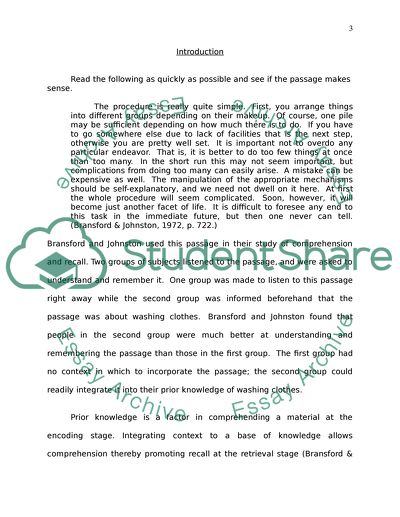Cite this document
(The Effect of Context Difference to Comprehension and Recall Research Paper, n.d.)
The Effect of Context Difference to Comprehension and Recall Research Paper. Retrieved from https://studentshare.org/psychology/1546303-psychology-report-memory-for-text
The Effect of Context Difference to Comprehension and Recall Research Paper. Retrieved from https://studentshare.org/psychology/1546303-psychology-report-memory-for-text
(The Effect of Context Difference to Comprehension and Recall Research Paper)
The Effect of Context Difference to Comprehension and Recall Research Paper. https://studentshare.org/psychology/1546303-psychology-report-memory-for-text.
The Effect of Context Difference to Comprehension and Recall Research Paper. https://studentshare.org/psychology/1546303-psychology-report-memory-for-text.
“The Effect of Context Difference to Comprehension and Recall Research Paper”, n.d. https://studentshare.org/psychology/1546303-psychology-report-memory-for-text.


